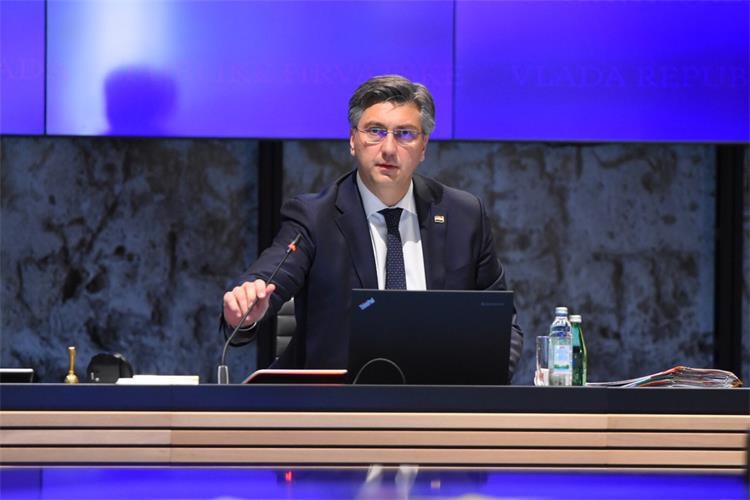- Published: 14.05.2020.
PM for building tolerant society by soberly looking at past trauma
Prime Minister Andrej Plenkovic on Thursday commented on the 75th anniversary of the Bleiburg tragedy, saying that a truly tolerant society could be built only by soberly looking at past trauma and by respecting every victim.
"Today, three quarters of a century later, we remember that difficult chapter in Croatian history and we remember all victims. Today that is a moral obligation for the modern Croatia, which was built on the harmony and unity of the Croatian people in the Homeland War," Plenkovic said at a cabinet meeting.
We will be able to build a truly tolerant society only by soberly looking at past trauma and by respecting every victim, which was one of the main political messages of Croatia's first president Franjo Tudjman, who participated in Croatia's antifascist movement, Plenkovic said.
In Western Europe, the victory over fascism 75 years ago was key for establishing democratic orders which, in the post-war years, embarked on reconciliation, economic recovery and unification in order to bring Europe lasting peace and prevent any future conflict, he said.
In Central and Eastern Europe, the end of WWII brought the defeat of the fascist terror and horrors of war, yet it did not bring democracy but a new totalitarianism, i.e. communism, which was defeated only with the fall of the Berlin Wall, Plenkovic said.
In 1945, after the defeat of the Independent State of Croatia, that was also Croatia's fate, which was deprived of freedom and democracy for another 50 years, he added.
While the end of WWII in Western Europe marked the end of unprecedented horrors of war and fascist crimes, in which the Holocaust holds a special place, in Croatia May 1945 was also synonymous with horrible post-war communist crimes, Plenkovic said.
Tens of thousands of people, disarmed defeated troops, as well as many civilians who were running away from the establishment of the communist regime, were killed without trial and buried without a grave from Bleiburg to Tezno along the Way of the Cross, he said.
That happened also after the official end of WWII and that mass crime, as well as the persecutions and arrests of all so-called class enemies and persons of different views and reprisals against the Catholic Church, caused anxiety and fear among a large part of the Croatian people, Plenkovic said.
The rigged post-war trial of the Blessed Cardinal Alojzije Stepinac, although he spoke up many times against all forms of discrimination and personally saved many Jews and Serbs, additionally compromised the then authorities and principles of justice, he added.
That is why in present-day Croatia the relationship towards that fraught and multi-layered period of Croatian history is painful and traumatic, despite it being clear that thanks to the antifascist movement and resistance against Nazism, Croatia came out of WWII as a winner, the prime minister said.
It is up to us to build on those foundations a European Croatia founded on democratic values, to build a society which promotes the culture of remembrance, tolerance and mutual respect, he added.
"We owe it first and foremost to ourselves and especially to our youth so that, with a composed look on the past and optimism for the future, unburdened, we can build an even better Croatia."
Text: Hina
